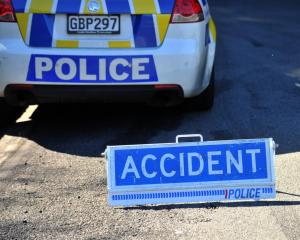Mountain bike guiding company Fat Tyre Adventures is one of only three operators in the resort to have registered with the agency, out of 19 required to do so under new regulations aimed at improving safety in the adventure activity industry.
Owner-operator Greg McIntyre said he was audited and registered a year ago, and operators were given ''plenty of time to get themselves organised''.
''I'm gobsmacked that so many people have not got there, including some big, big companies.
''They've left things to the last moment. Everyone's rushing and some are going to be sitting on the sidelines watching everyone else do business, come November.''
Operators offering activities that ''deliberately expose participants to a risk of serious harm'' must be audited by an approved auditor and and registered with Worksafe NZ by November 1.
Activities run by sports clubs and schools or events run by sports or recreation clubs are excluded, as are activities that are not taught or guided.
The regulations arose from a review of the sector ordered by Prime Minister John Key in 2009 after a series of fatal accidents.
Earlier this year, AJ Hackett Bungy co-founder Henry van Asch told the Otago Daily Times operators in the resort would be less affected than those in other areas because adventure aviation, commercial jet-boating and rafting were exempt from the regulations and covered by other rules.
However, WorkSafe figures show Queenstown operators covered by the new regulations have been slow to act and some will miss the deadline.
Of the 16 yet to register, 10 are now being audited and four have entered a contract with an audit provider.
The picture is similar nationwide: of the 340 operators required to register, about 75 have done so and of the 265 remaining, 187 are now being audited.
WorkSafe NZ project manager adventure activities Bryan Smith said the 78 operators who had not submitted documents for audit were ''unlikely'' to meet the deadline.
About half were seasonal activity operators, or had told Worksafe they were intending to stop offering the activity temporarily or permanently.
Despite the last-minute rush, the auditing process was ''robust'' and the regulations would be enforced after November 1, he said.
They would ''significantly improve safety'' in the industry, but it was still up to operators to take responsibility for the day-to-day safety of their operations.
Mr McIntyre said for operators that already had a good safety plan in place, an audit was likely to take about two days.
Although his auditor had cost about $1000 a day, it had been a ''brilliant'' process.
''It's all part of legitimising your business, and understanding that you run it with the best practice you can, without wrapping all your clients in cotton wool and ending up like other parts of the world.''












